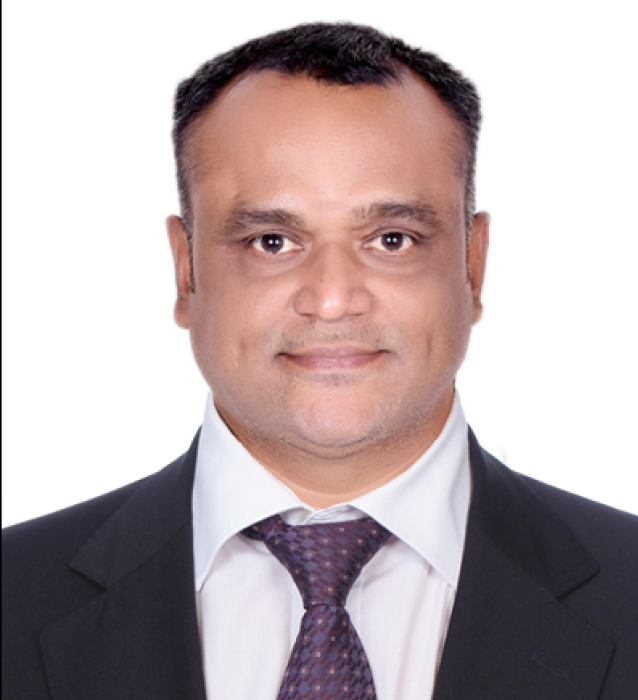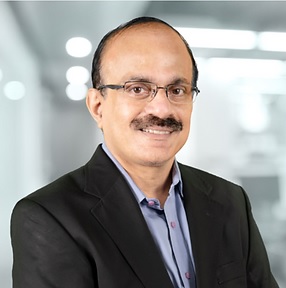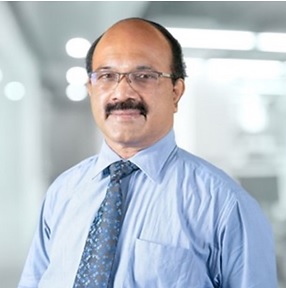The curriculum for MTech in Infrastructure Engineering involves learning the theoretical and practical aspects of the below key modules:
Semester 1
| S.No. | Course | Credit |
|---|---|---|
| 1 | Airports & Seaports Engineering | 2 |
| 2 | Design and Construction of Highways | 3 |
| 3 | Project Management in Construction | 4 |
| 4 | Construction Equipment | 4 |
| 5 | Multidisciplinary Approach in Infrastructure management | 4 |
Semester 2
| S.No. | Course | Credit |
|---|---|---|
| 1 | Metro Rail Transportation Design & Construction | 3 |
| 2 | Deep Excavation and Pile Foundation | 3 |
| 3 | Repair and Rehabilitation of Structures | 4 |
| 4 | Building Information Modelling for Infrastructure | 4 |
| 5 | Research Methodology | 4 |
| 6 | Industrial Training & Certification | 3 |
Semester 3
| S.No. | Course | Credit |
|---|---|---|
| 1 | Bridge Engineering | 3 |
| 2 | Geospatial Engineering | 4 |
| 3 | Advanced Concrete Structural Design | 4 |
| 4 | Formwork Engineering | 4 |
| 5 | Sustainable Development and Urban Planning | 4 |
| 6 | Safety in construction | 4 |
| 7 | Research Project Stage I | 5 |
Semester 4
| S.No. | Course | Credit |
|---|---|---|
| 1 | Group Project | 7 |
| 2 | Research Project Stage II | 15 |
L&T EduTech shall facilitate internships across L&T’s business units for qualified and well performing students, based on the requirements of the business units. The internship would be offered across various Technical and Functional departments including Finance, HR, Digital & IT streams. It will also provide opportunity for the students to be a part of forums with access to webinars and conferences and an opportunity to interact with Subject Matter Experts from the Industry.
An M.Tech in Infrastructure Engineering is a postgraduate program designed to provide students with advanced knowledge and skills in the fields of infrastructure planning, design, construction, and management. This program covers a wide range of subjects, including construction materials and techniques, project management, transportation systems, environmental engineering, and geotechnical engineering. Pursue careers in various industries, such as construction, transportation, urban planning, and environmental engineering. Gain the skills and expertise required to design and manage infrastructure projects of medium to large scale, including highways, airports, railways, ports, water supply systems, and more.

Larsen & Toubro Ltd is one of the leading engineering conglomerates operating at various parts of the globe providing technology, engineering, construction manufacturing and services including learning and assessment solutions and platforms through its EduTech business unit. L&T EduTech is a new business unit from L&T, which aims to bridge the gap between Industry and Academia. The core objective would be to enhance the employability of students as well as aspiring professionals across various Engineering & Technology sectors. Keeping the focus on employability, L&T EduTech has launched a series of industry-led application-oriented courses under its product portfolio - L&T College Connect.
L&T EduTech will conduct program delivery in each semester in Hybrid model by its expert practitioners on the respective subject/ technology.
Each of these programs will provide conceptual learning supported with real time industry scenarios. As a result, students will be exposed to the fundamentals along with industry relevant knowledge derived from practice. These programs will aid in better understanding of the current state of the practice for Industries, thereby improving the employability of the students.
Infrastructure engineering is a crucial sector for the growth and development of any country. It encompasses a wide range of projects such as roads, bridges, airports, railways, and power plants that form the backbone of any modern economy. In India, Dubai, and internationally, the infrastructure engineering industry is undergoing rapid growth and transformation, driven by increasing urbanisation and the need for sustainable infrastructure.
In India, the infrastructure engineering industry has been a priority for the government for many years. With the launch of the National Infrastructure Pipeline (NIP) in 2020, the Indian government has allocated over USD 1.4 trillion for infrastructure development over the next five years. This massive investment is expected to boost the industry's growth and create new opportunities for both domestic and international players. The focus of the NIP is on developing world-class infrastructure in sectors such as energy, transport, and urban development, which will create jobs and improve the quality of life for millions of people across the country.
Join the M.Tech in Infrastructure Engineering program and be part of a dynamic community of students and industry professionals who are shaping the future of the Infrastructure Industry.

Program Leader
My name is Arjun Vasatkar, and I am the program leader for this course at ADYPU. We are immensely proud of our cutting-edge curriculum, which has been developed both to align with the demands of the industrial sector and to mirror some of the best infrastructure engineering programs in the world. I welcome you to join
ADYPU to transform your career and give you a competitive advantage in pursuing a rewarding professional career

Program Leader - Engineering
Dr. Vijayakumar Varadarajan is a devoted computer scientist and engineer with a Ph.D. and twenty years of experience at the national and international levels of education. His management expertise in a wide range of businesses and organisations has allowed him to get insight into the cutting edge of future advancements. He's been an adjunct professor at the University of New South Wales and a professor and associate Dean at VIT University in Chennai, to mention a few.

Lead SME – Civil Engineering
Masters in Structural Engineering from IIT Madras

B.E. Electrical and Electronics Engineering
B.E. Electrical and Electronics Engineering from College of Engineering, Guindy

This is a global M.Tech program in Infrastructure Engineering that provides in-depth instruction in cutting-edge areas including infrastructure planning, design, construction, and management; infrastructure technology; virtual design and development; data analysis; artificial intelligence (AI) or machine learning (ML); and digital technologies. This course will familiarise you with the most in-demand skills that you need to lead any successful infrastructure project of any scale.

Stay updated on the latest infrastructure engineering industry trends and practises by accessing resources powered by our research, knowledge, and real-world work experience with our collaboration partners, L&T EduTech.

In order to make the most of your time spent studying cutting-edge technology and advancing your career prospects, register for relevant networking events, job boards, startup brainstorming sessions, and community support 24/7 with online groups and webinars. Make contact with influential people in the global infrastructure and engineering industries. And be able to launch your ideas in real time and get inspired.
M.Tech in Infrastructure Engineering is a postgraduate degree program that focuses on the planning, design, construction, and management of infrastructure projects such as transportation systems, water supply systems, and building structures. It is equivalent to any leading MSC in infrastructure engineering, Mtech in civil engineering or Master of infrastructure engineering and management programs taught globally.
Candidates should have a B.E./B.Tech degree in any discipline with a minimum of 50% marks in aggregate from any recognized university/Institution or AMIE, or any other equivalent qualification. Along with-it candidates should also have a valid score in GATE or ADYPU Nuovos PGAT.
Graduates with an M.Tech in Infrastructure Engineering can work in various fields such as infrastructure development, construction, project management, urban planning, and transportation engineering. They can work in public and private sector organisations such as government agencies, engineering firms, construction companies, and consulting firms.
Candidates pursuing an M.Tech in Infrastructure Engineering must have a strong foundation in mathematics, physics, and computer programming. They must also have analytical and problem-solving skills, good communication skills, and knowledge of engineering software tools. And looking for Mtech civil engineering colleges with large MNCs internships, cutting-edge curriculum and global community support.
It is a 2-years full time program.
Airports & Seaports Engineering, Design and Construction of Highways and Pavements, Metro Rail Transportation Design & Construction, Deep Excavation and Pile Foundation, Bridge Engineering. The syllabus of an M.Tech in Infrastructure Engineering program includes courses in transportation engineering, structural engineering, construction management, mechanical engineering, project planning and management, and environmental engineering.
The average salary for an M.Tech in Infrastructure Engineering graduate varies depending on the sector and job profile. Graduates can expect to earn a starting salary of around INR 10–12 lakhs per annum. With experience, the salary can go up to INR 20–25 lakhs per annum. The salary increments are based on the experience of the candidate and the quality of their educational achievements and on-the-job training results. ADYPU’s MTech programs have global accreditation equivalent to degrees offered by European and British universities, such as Master of Infrastructure Engineering and Management, Msc Infrastructure Engineering, MTech in Civil Engineering, MTech in Transportation Engineering and MTech in Highway Engineering. An opportunity to connect with the global faculty staff and alumni from the best colleges for MTech in civil engineering and infrastructure engineering.

MBA Pro is a global MBA designed for recent graduates and experienced professionals seeking international career advancement opportunities. 

Just as the circulatory system is vital to the human body, the finance sector is the economy's lifeblood. Technology and innovation are the driving forces behind rapid advancements in finance.

Is rapid advancement giving you FOMO? Do you have thoughts about transitioning into a whole new field? Look no further because we got you!